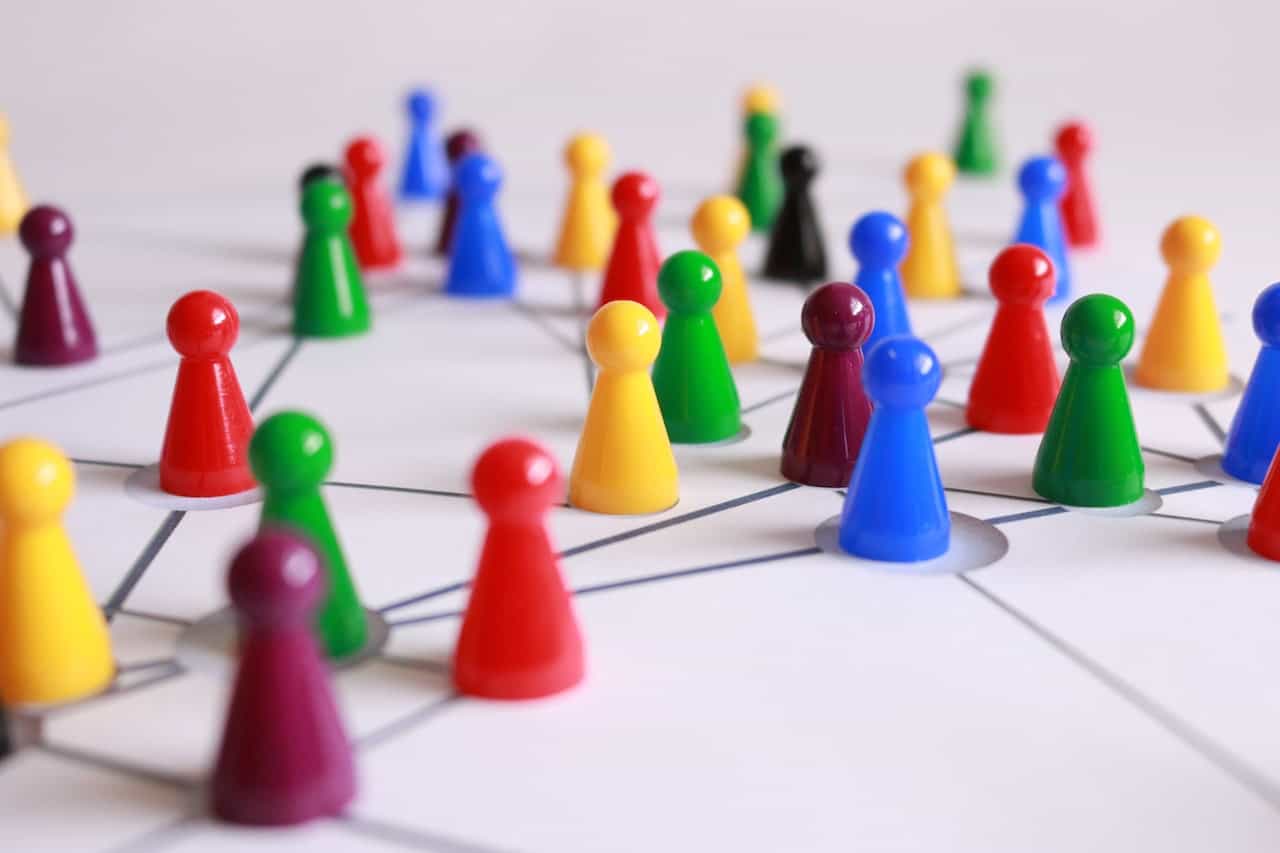How often have you reached out to someone for advice or collaboration and then felt like you didn't get much out of the interaction? You thought it would come easy - but it didn't. You sat through a meeting you didn't want to be at. Why do things not work out? We are here to help you understand how to improve your collaboration skills.
Be a good listener.
Because other people's ideas are just as important as yours, good listening skills are essential for a successful team.
Here's what you should keep in mind:
- Don't interrupt. Let the speaker finish their thought before you respond or ask questions. This will allow you to fully understand the shared information and avoid confusion down the line.
- Please don't attempt to solve the problem before you fully understand it. Many people make the mistake of jumping in with a solution before they've fully grasped the situation. Instead, focus on taking in all of your team members' views and needs before coming up with an answer—it will be more comprehensive and less likely to miss something important.
- Ask questions to clarify areas that aren't clear or need more explanation from another perspective, but try not to go overboard here; don't make your teammates feel like their idea has been picked apart (again) by overdoing it with questions about details such as why they chose one color versus another for the UI design mock-up when any color would have worked just fine anyway!
Provide feedback in the form of constructive criticism.
Provide feedback in the form of constructive criticism.
Feedback is one of the most important aspects of communication and collaboration. Unfortunately, it's also one of the most challenging things to do well. Feedback is particularly challenging to handle when it's negative, so let's start with that. The best way to give negative feedback is constructively: Focus on providing specific details about what's being done well and where there are areas for improvement. In addition, offer suggestions that can help someone improve their performance or behavior. Because no one likes receiving criticism, be sure to deliver your feedback privately and promptly. You should also schedule a face-to-face meeting because people often take things out of context when communicating through email or chat platforms such as Slack and Microsoft Teams (or other means). The focus should always be on helping someone improve their skills and strengthen your relationship simultaneously, not making them feel inferior or unworthy.
Acknowledge other people's ideas and input.
Acknowledging the ideas and input of others is a vital part of collaboration. Without acknowledgment, people are left wondering if their contribution was even heard or appreciated. Acknowledgment can be as simple as:
- acknowledging that a person's idea has been heard and appreciated
- acknowledging the effort they put into coming up with a solution
- acknowledging that their idea has been considered and is a valuable contribution
Use positive language in your communication
Active and positive communication is essential in every aspect of your life. When communicating with others, use positive language and tone to avoid unnecessary conflict. Being able to communicate effectively will help other people to understand your ideas and opinions better. You should let others know what is essential to you and ask questions when you need clarification on anything. When communicating with someone at work, it's good to be polite, encouraging, and appreciative. These qualities will make it easier for others to collaborate with you.
Discuss mistakes openly and honestly.
One of the best ways to be a better collaborator is to be honest with everyone about what works and what doesn't. When something doesn't work, discuss it openly and without blame. This way, you can all brainstorm ideas together to fix the problem.
A common mistake people make when collaborating is assuming that problems will go away if they ignore them. Another common mistake is blaming other people for their mistakes. These strategies usually lead to more problems down the line because they don't allow you or your team members to learn from your mistakes and improve your collaboration skills in the future.
Define roles and responsibilities early on in the process.
A common reason for the failure of collaborations is that roles are either not clearly defined or, if they are, the lines of responsibility aren't clearly communicated. It can be tempting to assume that everyone will naturally know what their role is, but this assumption leads to a whole host of issues. First, it can lead to duplication: two people doing the same job because one thought the other was doing it. Secondly, it can lead to frustration for your collaborators if they feel like they're being saddled with extra work while others are slacking off (and vice versa).
Just as importantly, collaborative roles should be flexible and appropriate to particular situations. When you start working with a new collaborator, begin by figuring out what potential roles each person could fulfill in your project. This will help you identify which tasks need to be done and who is well-suited for which jobs – collaboration expert Jeff Veen suggests using colored stickers or post-its on a whiteboard or large sheet of paper as an easy way to do this. Once you have brainstormed these roles together and decided on them together, make sure everyone writes down exactly what their responsibilities will be so there's no confusion later on! Finally: remember that different projects have different requirements; don't rely solely on established hierarchies within organizations or fixed-job titles when assigning tasks
Celebrate small successes together as a team.
They're small victories. They're the ones that you don't talk about and don't brag about. They're the ones that you know you could've done a bit better and just decided not to let that bother you because they are insignificant. But they are all important and matter, which means we can't be afraid to celebrate them together as a team!
Involve every team member in decision-making processes.
It's crucial to ensure that all team members have a voice in decision-making.
For example, if you're seeking to decide on a new means of communication for the team, everyone must be involved.
Begin by hosting a meeting and asking for input from every team member. What are their thoughts about which modes of communication would be most helpful? Which do they think would be most optimal for various types of conversations?
If you have trouble coming up with possible solutions, ask others for help. The more ideas you brainstorm, the more options available when it comes time to make a final decision.
When sharing ideas with others, it's also helpful to listen closely to what they have to say. Try to keep an open mind and consider other people's ideas as you go through this process. Will your colleagues' suggestions fit into your idea or enhance it further? How can each person assist in building off one another's concepts?
Once you've listed all possible solutions and considered them thoroughly as a group, it's time to take action! Make sure that everyone is on the same page regarding the best course of action before implementing.
Collaborative leadership skills can be learned if you are committed to engaging others, listening carefully, and being open to constructive criticism.
When you begin to learn how to be a good collaborator, you must keep an open mind. You may find yourself in a situation where you have to work with someone who is not very good at working with others. The key here is to stay focused on the task at hand and don't get discouraged if some people aren't as good as you are. This can help you become better because when they see that your skills aren't perfect, they will try harder themselves, ultimately leading to more success for everyone involved.
It's also crucial that when you're learning how to be a good collaborator, make sure that you know your strengths and weaknesses so that other team members can benefit from them too! If one person has stronger skills than another team member, then this individual should be given responsibility over certain tasks or aspects of the project where their skill set would be most useful (and vice versa).
If working together well means being open-minded about new ideas and feedback while also constructive criticism, then collaborative leadership skills are something anyone can develop through dedication!






